

ActaeonPaul Manship1924 gilt bronze, 7' 1" H, 3' 9" L, 2' W Often inspired by classical mythology, here Manship depicts the climactic moment in the story (from Ovid's Metamorphosis, 3) when the prince, punished for seeing the goddess Diana naked, is being turned into a stag. Thus, he was chased and torn to pieces by his own dogs. | |
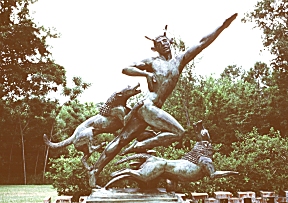 |
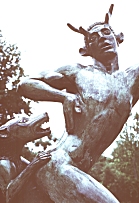 |
Cycle of LifePaul Manshipbronze armillary sphere, gilded 1924 5' 1½" H, 3' 11½" D Complicated symbolism includes the signs of the zodiac, the four elements (the wave pattern for water and the flames for fire, for example), and the cycle of life at the base. |
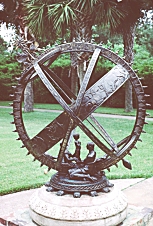 |
| The cycle of life includes the man, woman, and young boy at the base. A ring of turtles at the bottom represents eternity. See Beatrice Gilman Proske, Brookgreen Gardens Sculpture, 1968, for fuller explanation. | |
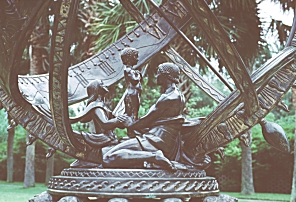 |
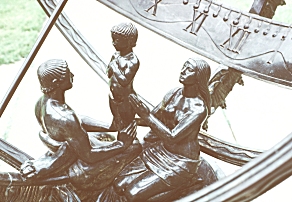 |
DianaPaul Manship1924 gilt bronze, 7' 3" H, 3' 9" L, 1' 11½" W Here the virgin huntress is accompanied by one of her hounds. Like many of Manship's works, this sculpture has essentially only one viewing angle, with emphasis on the fluid line, contours, and silhouette. | |
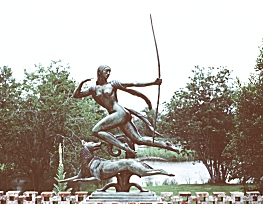 |
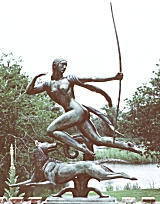 |
The Flight of EuropaPaul Manship1925 gilt bronze, 1' 10" H, 11¾" L, 8¼" W Not only was this statuette inspired by classical mythology, but it has been suggested that the depiction of the bull was inspired by Minoan art--the famous Vaphio cups. Here Jupiter, disguised as a bull, plunges through the waves borne by four dolphins, while a rather demure Europa, seated backwards, listens to the Cupid at her ear. See also Carl Milles' Europa and the Bull. | |
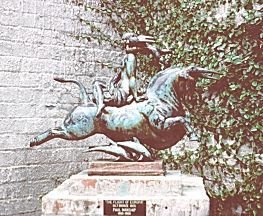 |
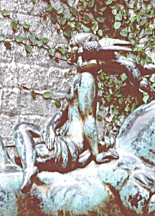 |
EveningPaul Manship1938 study model in bronze, 3' 8" H, 5' 7" L Designed for a fountain, the sinuous allegorical figure of Evening floats above sculptured clouds (!) with three owls above her. Typically in Manship, there is one primary viewing angle. | |
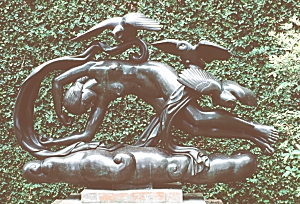 |
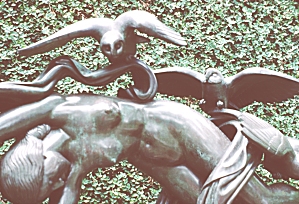 |
![]() Click here to return to places index.
Click here to return to places index.
![]() Click here to return to index of artists and architects.
Click here to return to index of artists and architects.
![]()